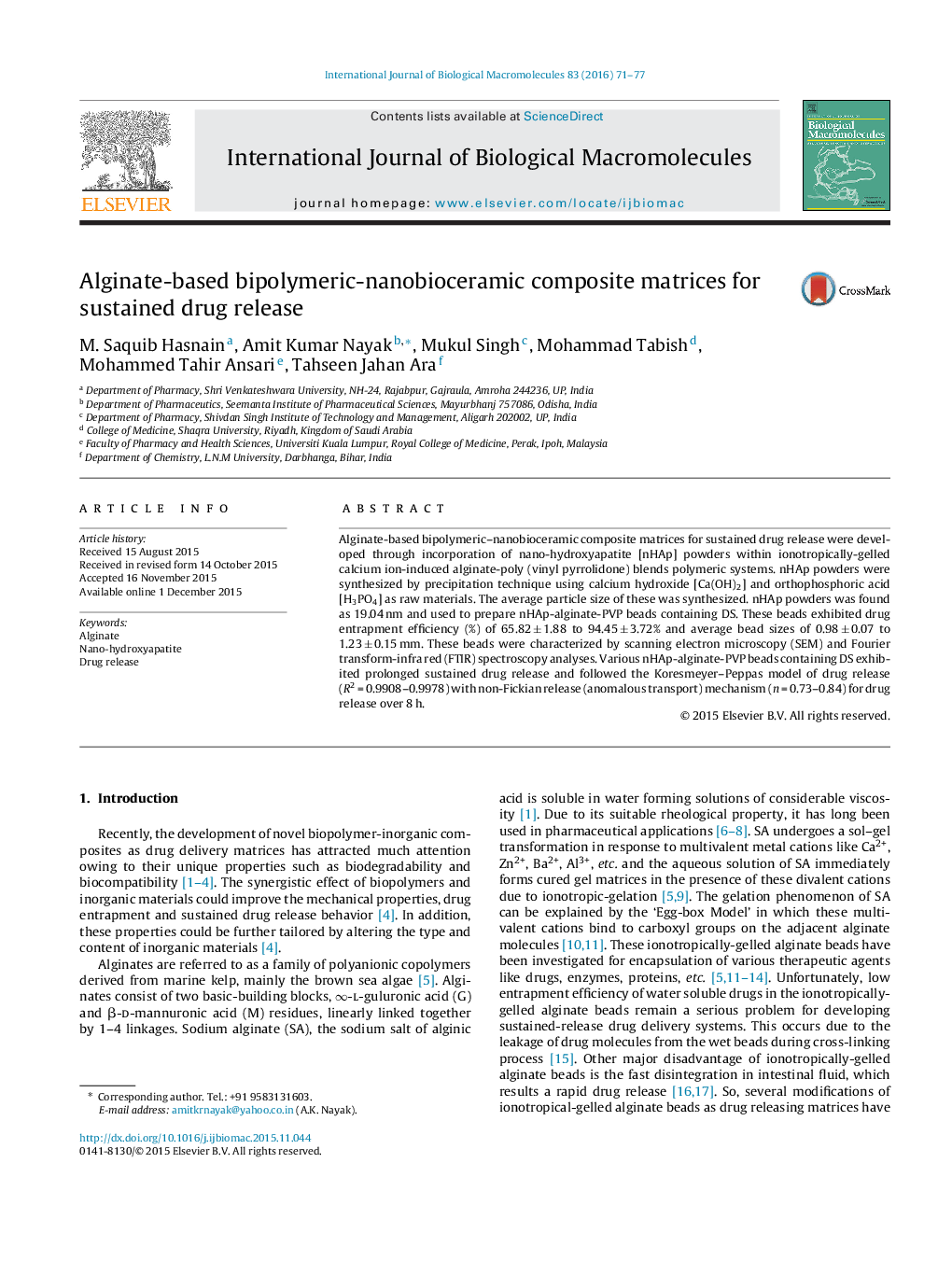| Article ID | Journal | Published Year | Pages | File Type |
|---|---|---|---|---|
| 1986044 | International Journal of Biological Macromolecules | 2016 | 7 Pages |
Abstract
Alginate-based bipolymeric-nanobioceramic composite matrices for sustained drug release were developed through incorporation of nano-hydroxyapatite [nHAp] powders within ionotropically-gelled calcium ion-induced alginate-poly (vinyl pyrrolidone) blends polymeric systems. nHAp powders were synthesized by precipitation technique using calcium hydroxide [Ca(OH)2] and orthophosphoric acid [H3PO4] as raw materials. The average particle size of these was synthesized. nHAp powders was found as 19.04 nm and used to prepare nHAp-alginate-PVP beads containing DS. These beads exhibited drug entrapment efficiency (%) of 65.82 ± 1.88 to 94.45 ± 3.72% and average bead sizes of 0.98 ± 0.07 to 1.23 ± 0.15 mm. These beads were characterized by scanning electron microscopy (SEM) and Fourier transform-infra red (FTIR) spectroscopy analyses. Various nHAp-alginate-PVP beads containing DS exhibited prolonged sustained drug release and followed the Koresmeyer-Peppas model of drug release (R2 = 0.9908-0.9978) with non-Fickian release (anomalous transport) mechanism (n = 0.73-0.84) for drug release over 8 h.
Related Topics
Life Sciences
Biochemistry, Genetics and Molecular Biology
Biochemistry
Authors
M. Saquib Hasnain, Amit Kumar Nayak, Mukul Singh, Mohammad Tabish, Mohammed Tahir Ansari, Tahseen Jahan Ara,
